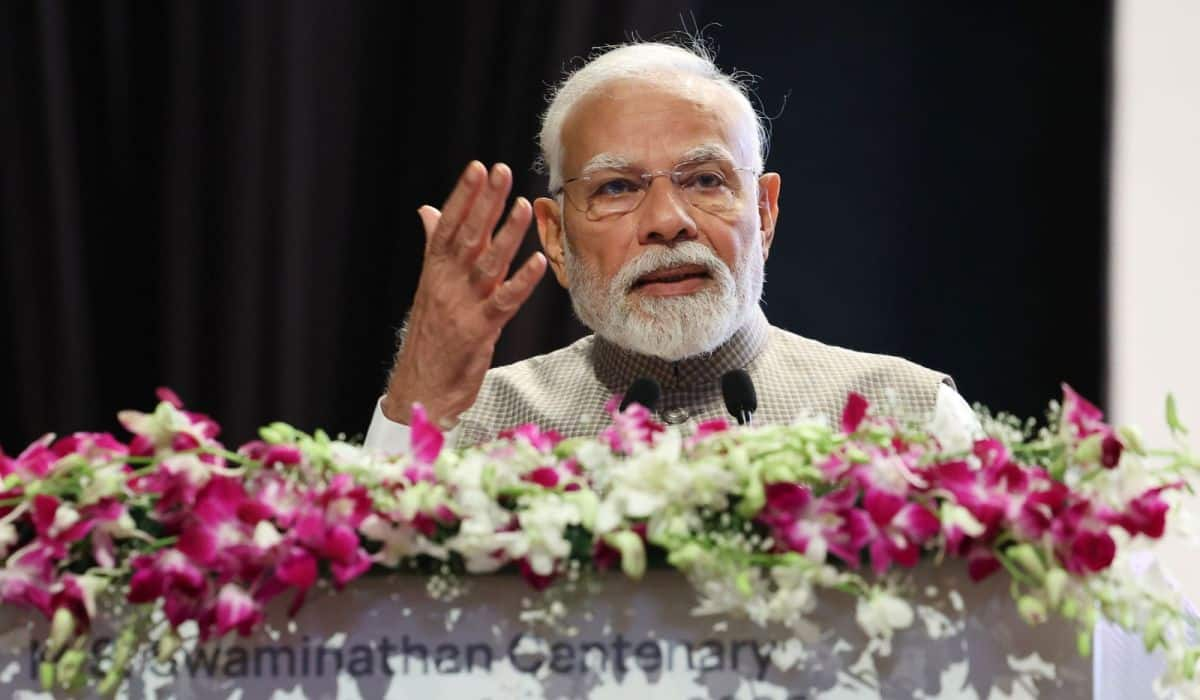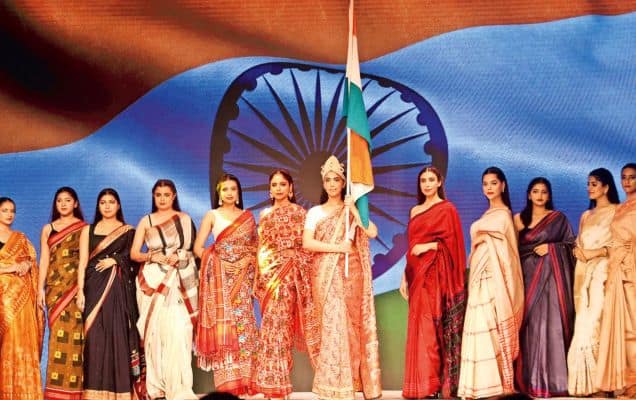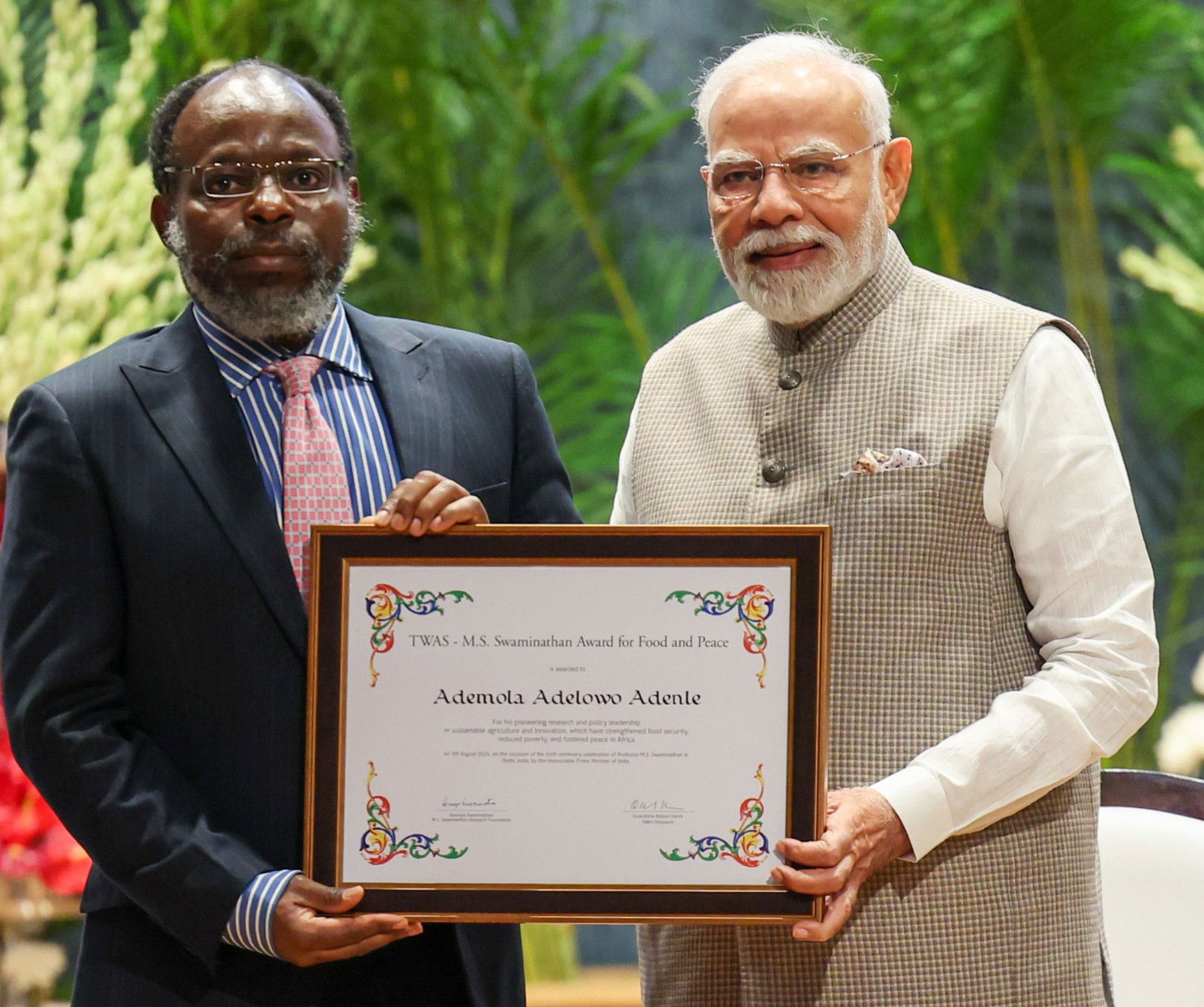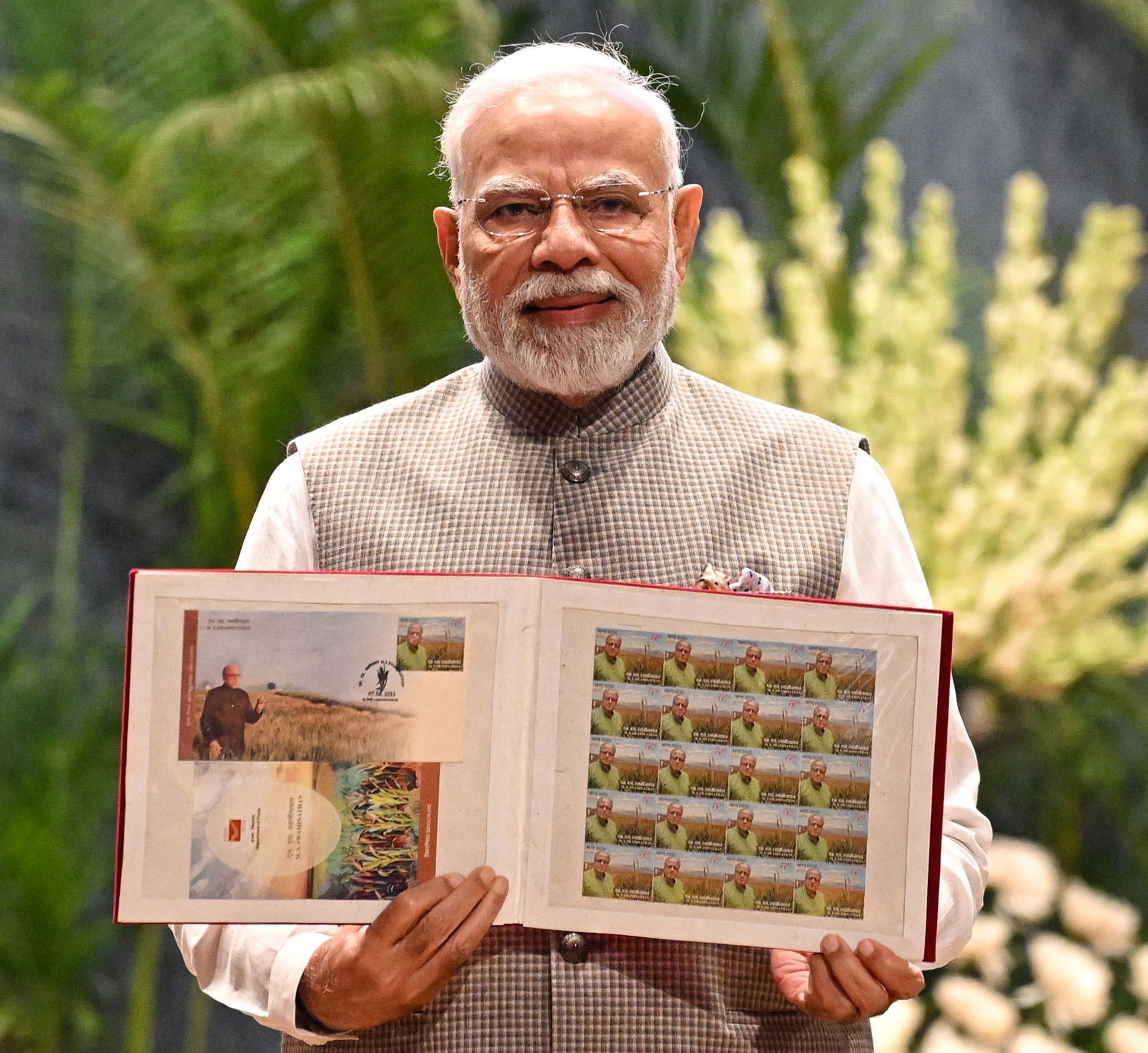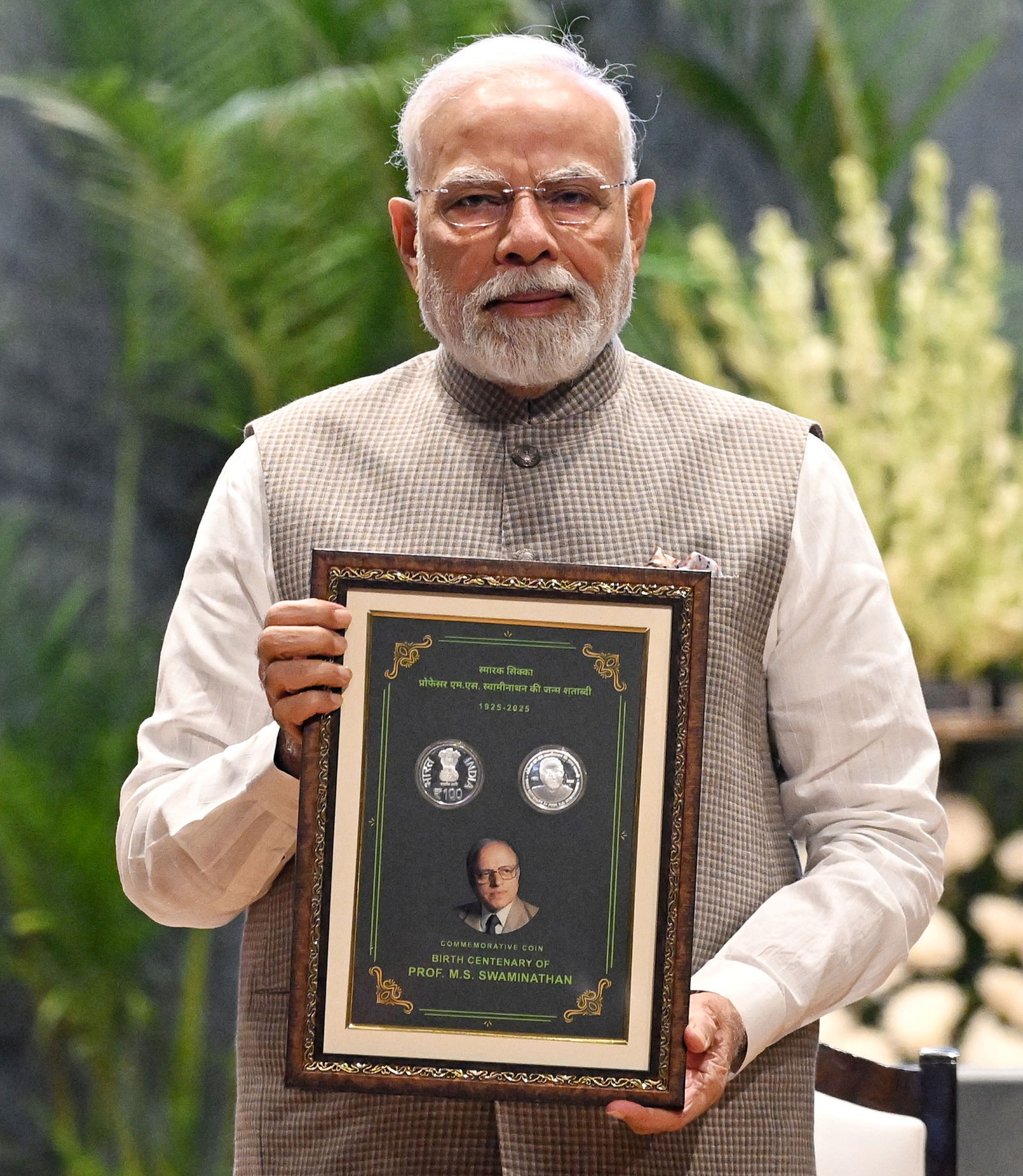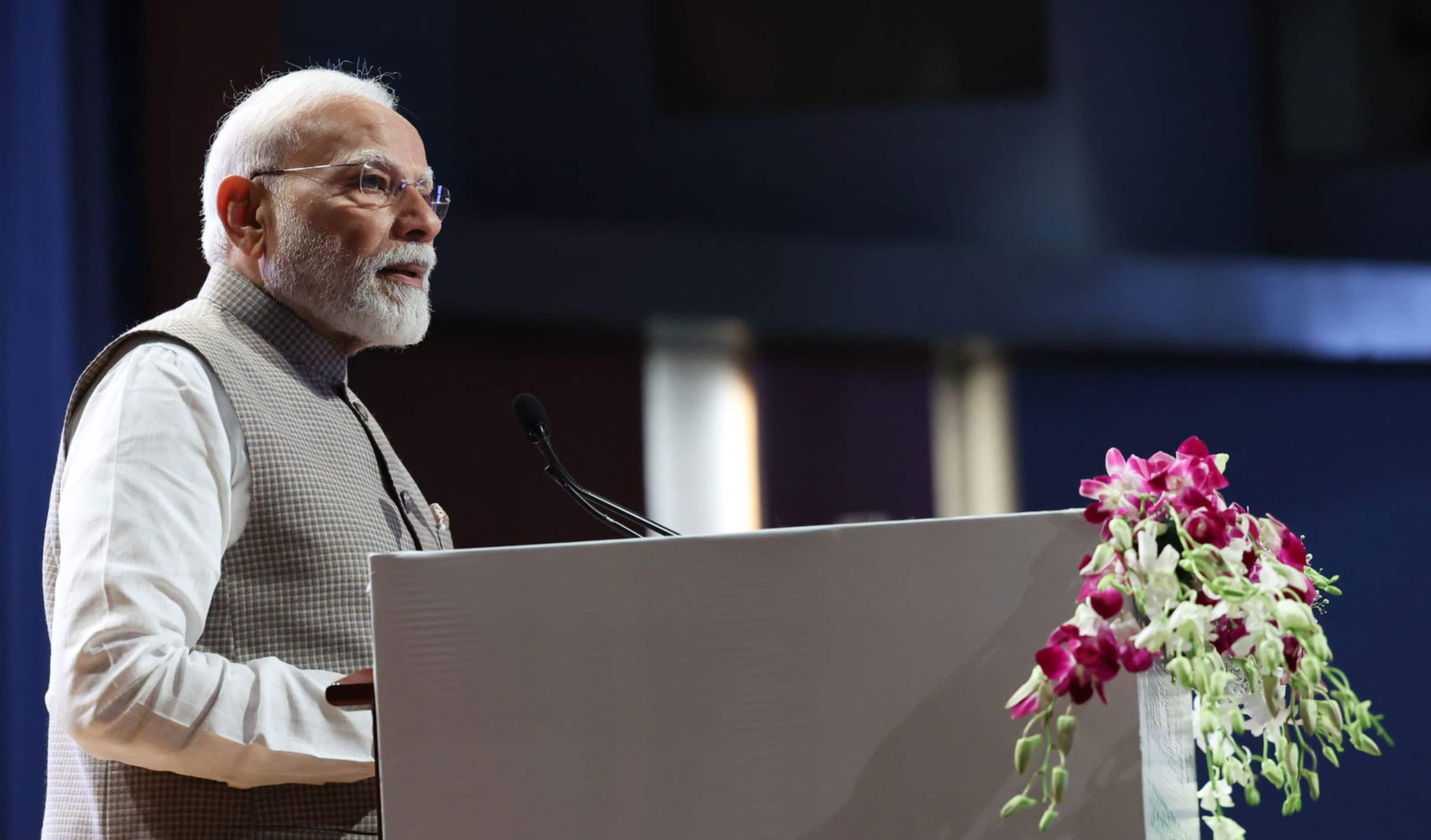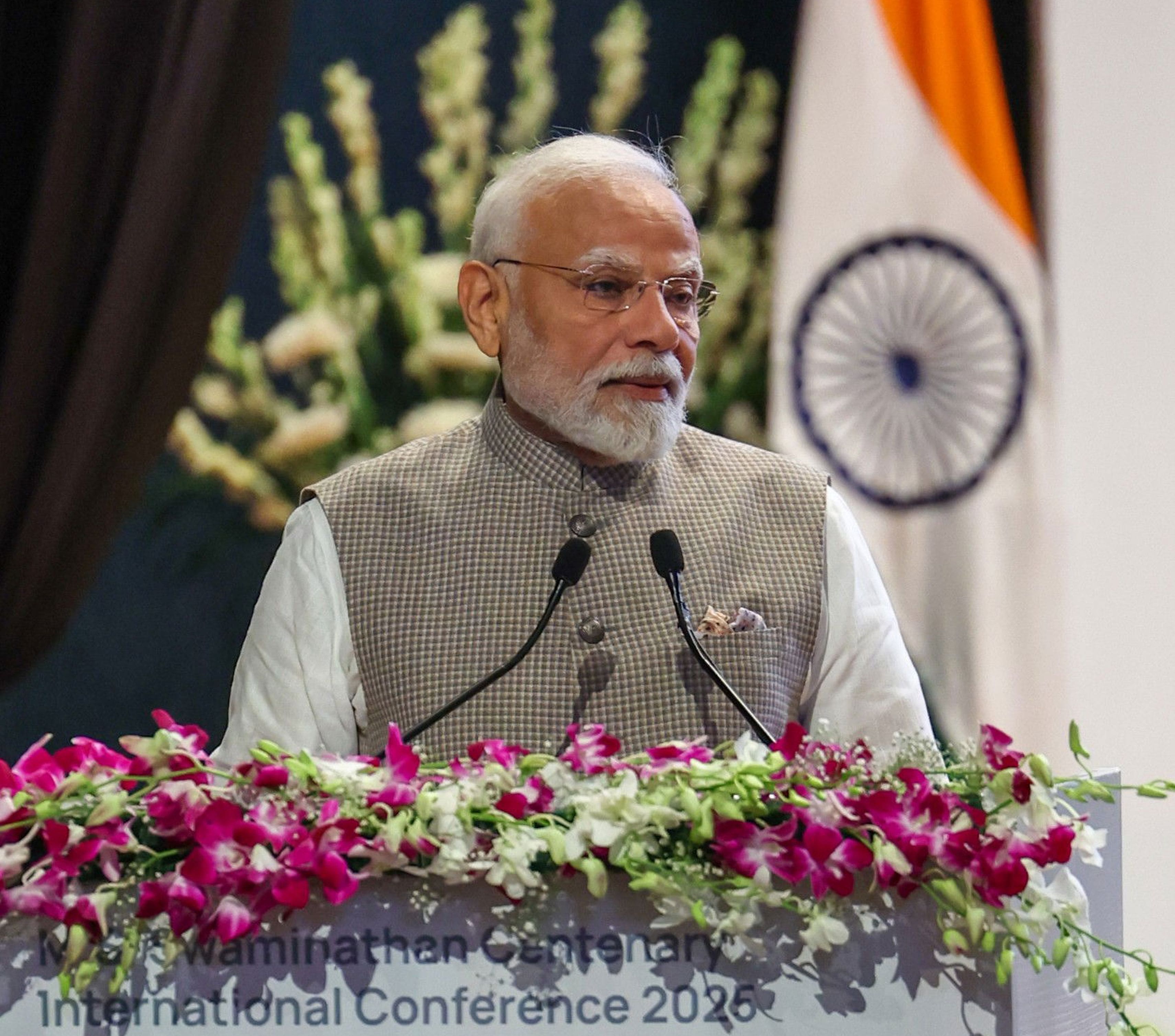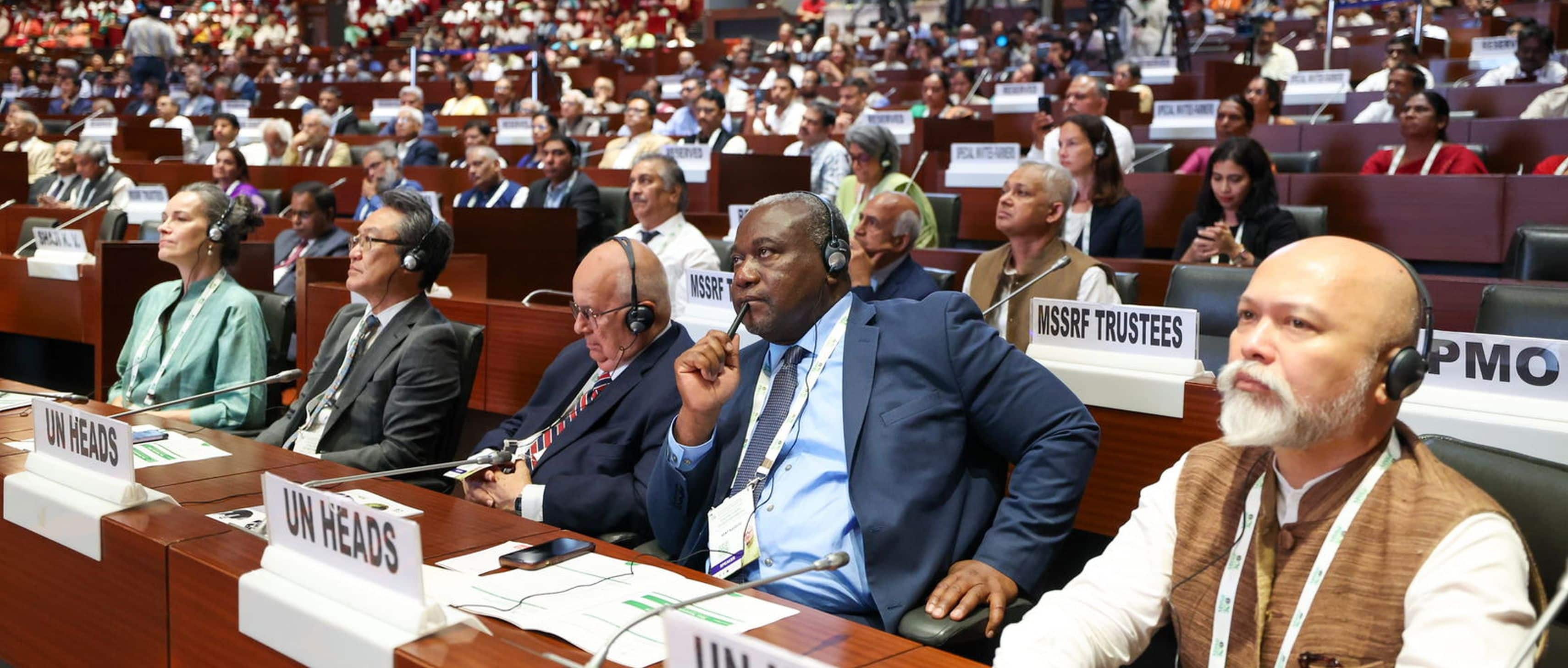ANI: You have mentioned in previous interviews that the methodology of computing job numbers is outdated and the true reflection is contrary to the present data available. What in your opinion is the present employment scenario in India and how will you increase employment opportunities?
Prime Minister: I have already given a detailed reply in the Lok Sabha during the debate on No Confidence Motion. In short, the point which needs to be understood is that: When economy is growing at a faster pace, in fact fastest among the major economies, how will the jobs market not expand? When investment into and the pace of execution of infrastructure projects like making roads, laying down rail lines, setting up power generation including solar parks and transmission lines is at all-time high, how come the jobs will not be created. Similarly, if there is significant growth in sales of commercial vehicles and passenger vehicles, does it not mean that jobs are being created? When FDI inflows are at an all-time high, will it not translate into manufacturing and job creation?
From just 2 mobile manufacturing units in 2014 we have grown to 120. When such development in electronic manufacturing is taking place, will it not create jobs ? Today, India has emerged as one of the top hubs of start-ups. Are they not creating jobs ? App-based aggregators are flourishing in India across food, logistics, e-commerce, mobility solutions and many more such sectors. Are they not creating jobs ? We all know the potential tourism has in creating jobs . Foreign tourist arrivals in India grew by 14% last year. Domestic tourism has also grown. Will this not result in job creation?
Today, India is seeing a historic boom in the aviation sector. Last year, over 10 crore people took a flight. Through UDAN scheme, we have put many places, particularly Tier-II and III cities on the aviation map. Will this not create jobs and opportunities across the board? More than 13 crore MUDRA loans have been given to our hardworking entrepreneurs. I have been told that over 3.5 crore of these loans have been given to first time entrepreneurs. Does every loan not create additional employment opportunities?
These are only a few examples. Employment generation is also evident from 45 lakh new Subscribers in the Employee Provident Fund and 5.68 lakh people joining the New Pension Scheme in the last nine months. All this has led to creation of more than one crore jobs only in the last year. Thus, the campaign that
jobs have not been created must come to a halt now. People are not going to buy it any more.
ANI: Your critics claim that you made a U-Turn on GST from your opposition as the CM. The Opposition calls GST a Gabbar Singh Tax while you call it the Good Simple Tax. 1 year down the line, can you please explain what benefits have GST brought?
Prime Minister: I would urge you to do some research on the U-Turn claims. Why was there opposition to GST under the UPA Government? The 'Know It All' Finance Minister refused to listen to the concerns of the various state governments and adopted a 'my way or the highway' approach. Not only Gujarat, but most states did not trust the UPA Government to be fair with them. They had not paid the GST compensation to the states which were promised. They were also unwilling to provide
GST compensation to the states if they suffered losses in the first 5 years. It is only when the NDA Government discharged the liability of the past GST Compensation and agreed to pay compensation in the event of loss for the first 5 years that the GST was possible.
Our GST model was acceptable to the states, because we were sensitive to their concerns. But why let facts come in the way of a good 'U-Turn narrative'? Opposition to GST is not from all the Opposition Parties. Only a few who have been continuously rejected by the masses are making baseless points. They not only want to misguide but also indulge in opposing for the sake of opposing. Whether it is Yoga, Ayushman Bharat, Swachh Bharat, NRC, surgical strikes, their conduct is for everyone to see. As for Gabbar Singh Tax, people who have seen only dacoits around them will naturally think of dacoits only!
Have they ever thought why people accepted
GST wholeheartedly? The Congress President spoke about Surat in Parliament. He tried his best to provoke people against GST during Gujarat elections, why did the people reject him? It must not be forgotten that people of this country particularly, the business community have supported GST and adopted it whole-heartedly. They deserve all compliments. Being a sensitive Government, we are also taking into account the feedback which comes from people and we are doing corrections wherever required. That is why
GST has acquired full faith of people and has made life easier for many of us. People have responded positively as it brings lot of benefits to them and to the economy.
The number of enterprises registered from Independence until now was 66 lakh. In just one year after the introduction of GST , the number of new enterprises registered is 48 lakh. Around 350 crore invoices were processed and 11 crore returns were filed in 1 year. Doesn't this show wide-spread public acceptance?
ANI: The recent implementation of the Supreme Court mandated NRC has created controversy, with Mamata Banerjee saying it could lead to "civil war";. What are your thoughts on this?
Prime Minister : Only those who have lost faith in themselves, fear loss of popular support and lack faith in our Institutions can use words like 'civil war', 'blood bath' and 'Desh Ke Tukde Tukde.' Evidently, they are disconnected from the pulse of the nation. As far as Mamata ji's stand is concerned, she should remember what she said on the floor of the Parliament in 2005. Was that Mamata ji correct or is this Mamata ji correct?
The Congress is also playing politics over the NRC. The roots of the NRC go back three decades, when Mr. Rajiv Gandhi had to bow to public pressure and sign the Assam Accord. Since then Assam voted Congress several times but the party did nothing about it and kept misleading the people. Congress knew a problem exists but allowed it to fester for decades because they were guided by vote bank politics. I want to assure the people that no citizen of India will have to leave the country. As per the due process, all possible opportunities will be given to get their concerns addressed. The NRC was a promise of ours, which we are fulfilling under the guidance of the Honourable Supreme Court. It is not about politics but about people. If someone is making it about Rajaneeti, it is extremely unfortunate. Our job in the political class is to work according to the will of the people and do what they have given us the mandate for.
ANI: The Opposition has raked up the issue of crime against women and incidents of lynching. Your critics say you have not spoken about them. Your comments?
Prime Minister: It would be a great travesty to reduce these incidents to mere statistics and then indulge in politics over them. That shows a kind of perverse mindset that looks at violence and criminality as something to be milked, instead of unitedly opposing. Even a single incident is one too many and deeply unfortunate. Everyone should rise above politics to ensure peace and unity in our society. My party and I have spoken in clear words, on multiple occasions against such actions and such a mindset. It is all on record. Also, we are people who go beyond just words. Look at the actions of our Home Ministry to see how we have acted against violence.
Soon after I assumed office, I had said from the ramparts of the Red Fort that it is everyone's responsibility to ensure the dignity of women, whether Government, Society, Family or Individual. At the level of Government, we have gone to the extent of making provisions of capital punishment in certain category of crimes against women. You might have noted that results in terms of quick disposal of such cases leading to even capital punishment have started coming in. Let there be no doubts about the will of my Government to implement the Rule of Law in its true letter and spirit.
ANI: Is women empowerment only a slogan or has there been any real progress?
Prime Minister: No country can progress if its women are not equal partners in the development process. Going a step ahead of women development, we are working towards women-led development. 'Beti Bachao Beti Padhao', was among the first programmes that this Government launched aimed at addressing the issue of declining Child Sex Ratio and educating the girl child. 'Beti Bachao, Beti Padhao' has led to significant improvement in the Child Sex Ratio in various parts of India. It has taken the shape of a vibrant mass movement that is changing mindsets all over. This is the first time in the history of independent India that we have two women in the Cabinet Committee on Security -- the Minister of External Affairs and the Minister for Defence. Women have, for the first time, been inducted as fighter pilots in combat roles in the Indian Air Force.
Construction of toilets in millions under Swachh Bharat Abhiyan both in rural and semi-urban areas augments women safety and security. Separate toilets for girls constructed in all government schools in mission mode will help reduce dropout of girl students. The newly amended Maternity Benefit Act statutorily increases maternity leave to 26 weeks and makes it mandatory for every establishment that has more than 50 employees (whether male or female) to offer creche facilities. This will ensure that working women are not compelled to drop out of the workforce. Mission Indradhanush and Pradhan Mantri Matru Vandana Yojana is ensuring the good health of the mother and the child.
Under the Ujjwala Scheme, free LPG connections have revolutionized the lives of poor women. It heralds freedom from smoky chulhas and persistent coughs. More than 5 crore LPG connections have been released to poor women so far. There is a sizeable and rapid growth in financial inclusion of women, which paves the way for irreversible and institutional progress. Through the Jan Dhan Yojana, more than 16 crore accounts of women have been opened. We have not only focussed on financial inclusion but also financial empowerment of women. Thanks to the Pradhan Mantri MUDRA Yojana (PMMY) over 13 crore loans have been given of which more than 70% have been given to women. Under the National Rural Livelihoods Mission, there is a massive increase in access to credit by women SHGs. You would be glad to know that the Pradhan Mantri Awas Yojana gives preference to allotment in the name of the women in the family. This is a major step in furthering the dignity and empowerment of women.
This Government has never shied away from tough measures to ensure gender justice. The Triple Talaq bill is in response to a long standing injustice done to Muslim women in India. The Anti-trafficking Bill, that has just been passed by the Lok Sabha, attempts to address one of the most pervasive crimes affecting women and children, especially the most vulnerable.
According to the new Haj policy, for the first time, women above the age of 45 years can go for the pilgrimage without a `mehram', or a male escort. This also is a harbinger of substantial change. I think all the points mentioned give a glimpse of this Government's consistent commitment to women empowerment. You can judge whether this is just a slogan or there is concrete action.
ANI: What is your stand on caste-based reservations? Is it true that your Government is waiting for the right time to abolish reservations?
Prime Minister : The objectives of our Constitution and dreams of Dr. Babasaheb are still incomplete. It is the responsibility every one of us to fulfill his dream and reservations are an important tool to achieve this. Reservation is here to stay. Let there be no doubts about this. The dreams of Babasaheb are the strength of this nation and we are committed to fulfilling them. Our Mantra is Sabka Saath, Sabka Vikas and to achieve this, it is most important to protect the rights of the poor, marginalized, downtrodden, Dalits, Tribals and OBCs.
Before any crucial election, there are vested interest groups who will raise a bogey that BJP will abolish reservations and sections of the media will amplify this. Those who are constantly spreading canards on the issue and politicizing it are the same people who have always crushed Babasaheb's dreams. They are trying to sow seeds of doubt and mistrust among the weaker sections of society. But, the people of India are wise and they will not believe this propaganda.
Look across the length and breadth of India, maximum MPs from SC, ST and OBC communities are from BJP. Maximum MLAs from SC, ST and OBC communities are from BJP. I would request you all to see the kind of things our former Prime Minister Rajiv Gandhi said about the Mandal Commission. On the floor of the Parliament he opposed it tooth and nail. The situation in his party is no different today.
ANI: Why are the smaller allies of the BJP losing faith in the coalition? Some have quit, some say they will not fight alongside your party in 2019, instead of adding to your kitty due to the stunning victory of 2014, you are seen as a party that is a difficult magnet to attract allies.?
Prime Minister : Two events of the recent past will answer your question- the No- Confidence Motion in the Lok Sabha and the election for the Deputy Chairperson of the Rajya Sabha. The outcome of both these events should indicate which coalition is intact and which is falling apart. In fact, we got support even from those parties which are not our allies. BJP has consistently expanded its base over the recent years among the people and welcomed more allies to the NDA family.
ANI: The political impasse in Jammu and Kashmir continues to be unresolved with the coalition collapsing and Governor's rule seemingly being continuous. Do you think your party made a mistake in forming government with the PDP? Would you do it again if there is a hung verdict again?
Prime Minister : The people's mandate during the State Assembly elections was towards formation of Government jointly by BJP and PDP. Also, in that situation, there was no other alternative. That is why, to fulfil the people's expectations, we formed the Coalition Government. However, after the sad demise of Mufti Sahab, there were hurdles in fulfilling those expectations. For BJP, people's interest is above political interests and that is why without casting any aspersions, we opted out of power. BJP is always with the people of J&K and is ready to fulfil their dreams. This importantly includes deepening the roots of Democracy in the State right down to the Panchayat and Village level. We made efforts to strengthen local self-government at the village level but in that coalition Government it was becoming increasingly tough to do so. Central Government is committed to holistic development of Jammu and Kashmir across the regions of Jammu, Ladakh and Kashmir Valley.
ANI: During No confidence motion in this session, we saw some unusual scenes? Rahul Gandhi walks up to you and hugs you...What went through mind when this played out? Congress claimed victory while others say it was a childish act by Rahul Gandhi ? What is your conclusion?
Prime Minister : It is for you to judge whether it was a childish act or not. And if you are unable to decide, watch the wink and you will get the answer. I am a humble Kaamdaar. I am nothing compared to the Naamdaars of this country, who have their own unique style of conducting themselves. They decide whom to hate, when to hate and whom to 'love' and how to make a show of it. In all this, what can a Kamdaar like me say.
ANI: Are you and your party concerned with Modi vs all syndrome? How are you planning to combat this `Mahagathbandhan' in 2019?
Prime Minister : The Opposition parties are so convinced about our Government's popularity that they have no faith in their ability to fight us individually. These parties had lots of time to prove their worth to the people. But they indulged in corruption, nepotism and mis-governance. Now they know that their electoral arithmetic based on caste, class, community and religion cannot withstand the chemistry of development. This happened because of people's unflinching trust in BJP's politics of development and their validation of the work the government is doing. Election after election and in state after state, people are repeatedly choosing the BJP to fulfill their aspirations. People have witnessed firsthand the change in their lives through the efforts of the Central Government. They have also seen that our Government is incorruptible and hard-working.
People have clearly recognized the difference between these parties and the BJP and hence the opposition has no option but to make it an 'All versus One' fight to even think about winning. Today, those who resisted the Emergency are standing with those who imposed it. Those who went about trying to fight corruption are with the party that has institutionalized corruption at all levels. Parties with a visceral hatred towards the Left ideology and parties espousing Left ideology are sharing stage. Parties whose very existence depended on fighting each other are now friends.
Let us understand the true character of the Mahagathbandhan .The Mahagathbandhan is for personal survival, not for ideological support. The Mahagathbandhan is for personal ambitions, not for people's aspirations. The Mahagathbandhan is purely about power politics, not about people's mandate. The Mahagathbandhan is about dynasties, not about development. The Mahagathbandhan is not about any union of minds or ideas, but about rank opportunism. The only question is whether they will break up before the election or after!
ANI: Imran Khan's Tehreek-e-Insaaf party will be assuming office in Pakistan soon, you spoke to Imran Khan and congratulated him. In his first speech he offered to hold talks with India...are you open for dialogue with the new dispensation of Pakistan ? Is there any hope for India participating in SAARC?
Prime Minister : I have always said that we wish to have good neighbourly relations. We have also taken various initiatives in this regard. I recently congratulated Mr. Imran Khan on his victory in the elections. We hope that Pakistan would work for a safe, secure, stable and prosperous region, free from terror and violence.















